Latest News
Germany apologizes for colonial-era genocide in Namibia
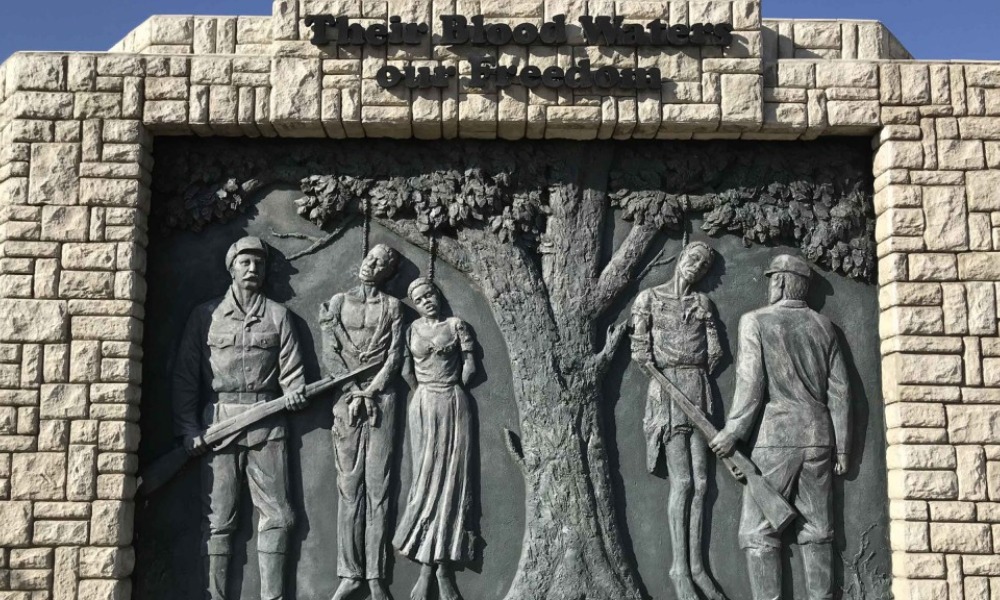
Germany apologized on Friday for its role in the slaughter of Herero and Nama tribespeople in Namibia more than a century ago and officially described the massacre as genocide for the first time, as it agreed to fund projects worth over a billion euros.
Namibia’s President Hage Geingob welcomed the “historic” move, but Herero paramount chief Vekuii Rukoro dismissed a deal agreed by the two governments as “an insult” because it did not include payment of reparations.
Instead, Germany will fund 1.1 billion euros ($1.3 billion) of reconstruction and development projects in Namibia, which German Foreign Minister Heiko Maas said would directly benefit the genocide-affected communities.
“That’s a black cat in the bag instead of reparations for a crime against humanity,” Rukoro told Reuters.
“No self-respecting African will accept such an insult in this day and age from a so-called civilized European nation.”
German soldiers killed some 65,000 Herero and 10,000 Nama people in a 1904-1908 campaign after a revolt against land seizures by colonists in what historians and the United Nations have long called the first genocide of the 20th century.
While Germany has previously acknowledged “moral responsibility” for the killings, it had avoided making an official apology for the massacres to avoid compensation claims.
In a statement announcing an agreement with Namibia following more than five years of negotiations, Maas said the events of the colonial period should be named “without sparing or glossing over them”.
“We will now also officially call these events what they were from today’s perspective: a genocide,” he added.
“In light of Germany’s historical and moral responsibility, we will ask Namibia and the descendants of the victims for forgiveness.”
Namibian media reported on Thursday that the funds promised by Germany would support infrastructure, healthcare, and training programs over 30 years.
Namibia’s president Geingob welcomed the move as a “step in the right direction”, his spokesman told Reuters.
“The apology on the part of Germany and acceptance there was a genocide is in itself historic and speaks to the moral responsibility Germany has towards Namibia and the communities affected by the first genocide of the 20th century,” Alfredo Hengari told Reuters.
Germany, which lost all its colonial territories after World War One, was the third biggest colonial power after Britain and France. However, its colonial past was ignored for decades while historians and politicians focused more on the legacy of Nazi crimes, including the Holocaust.
Sima Luipert, 52, who identified herself as of Namibia’s Nama people, said Germany should not have directed its apology to the Namibian state, which did not exist at the time of the genocide and was given no mandate to speak to Germany on behalf of traditional authorities.
“Germany must come to the Nama people, and to the Herero people, and to ask for forgiveness,” she said. “It is up to us to decide if that apology is genuine or not.
“This is not about money, it is about the restoration of human dignity.”
Latest News
Turkish intelligence captures a Daesh member near the Durand Line
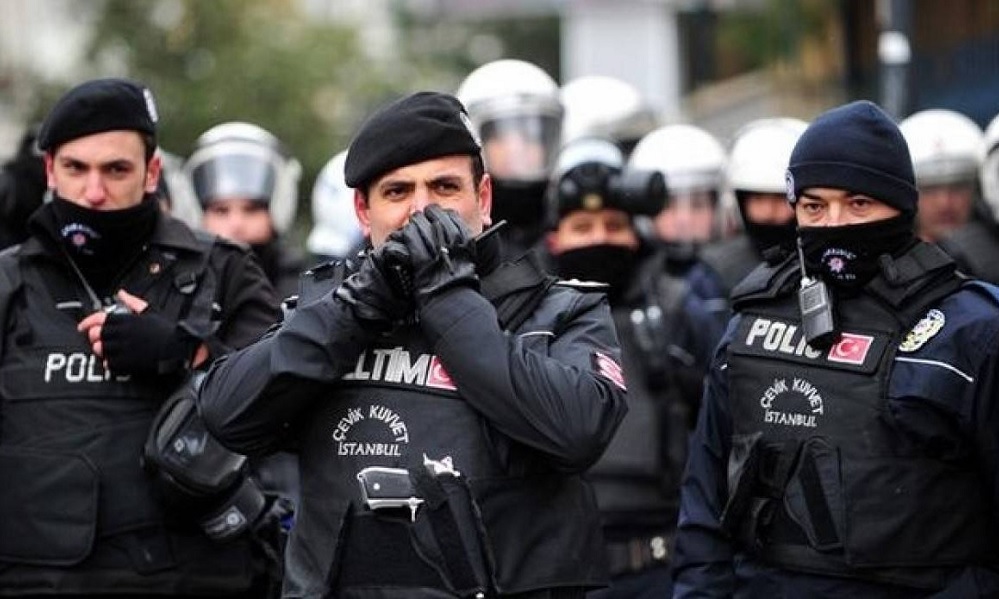
Turkish intelligence agents have captured a senior member of Daesh near the Durand Line, reportedly preventing planned suicide attacks in Turkey and other countries, according to Turkey’s state-run Anadolu Agency on Monday.
The suspect, identified as Mehmet Goren, is a Turkish citizen. He was apprehended during a covert operation and transferred to Turkey. Details on the timing of the operation or the involvement of Afghan and Pakistani authorities were not disclosed.
According to the report, Goren had risen through the ranks of Daesh and was allegedly tasked with carrying out suicide bombings in Turkey, Pakistan, Afghanistan, and Europe.
Daesh has a history of deadly attacks in Turkey, including the January 1, 2017 shooting at an Istanbul nightclub that killed 39 people.
Anadolu Agency reported that Goren’s arrest also provided intelligence on the group’s recruitment strategies and planned activities.
Latest News
Dozens of needy families in Kabul receive winter aid from Bayat Foundation
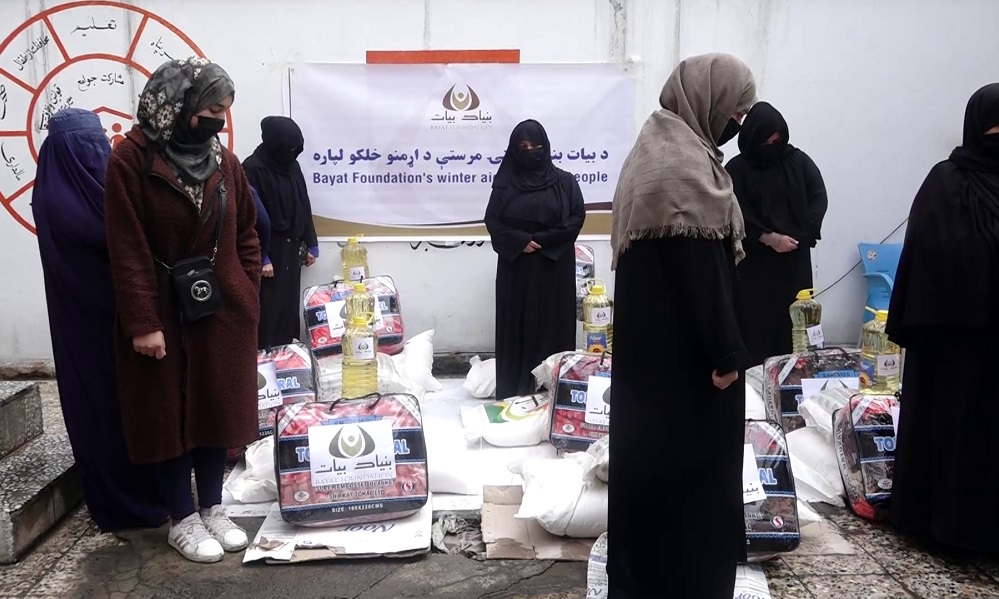
Dozens of needy families in Kabul’s fifth district have received essential winter assistance from the Bayat Foundation, as part of ongoing efforts to ease hardship during the cold season and worsening economic conditions.
According to foundation officials, the aid package includes staple food items such as flour, rice, and cooking oil, along with warm blankets to help families cope with freezing temperatures. Haji Mohammad Ismail, Deputy Head of Bayat Foundation, said the distribution began in Kabul and will soon be expanded to other provinces.
“Our assistance includes flour, rice, cooking oil, and blankets,” Ismail said. “Today, we started distributing these items in Kabul’s fifth district, and God willing, the aid will reach other provinces in the near future.”
Afghanistan continues to face widespread poverty, unemployment, and food insecurity, with many families struggling to meet basic needs, particularly during winter when access to work and heating becomes more difficult.Humanitarian organizations and charitable foundations have stepped up relief efforts to support those most affected.
Beneficiaries welcomed the assistance, describing it as a lifeline. “May God bless you for helping the poor. We had nothing and no work,” said one recipient. Another added, “Thank you for your help. Our flour was almost finished.”
Bayat Foundation officials stressed that winter aid distributions will continue in Kabul and other provinces in the coming days, as part of their broader commitment to supporting needy families across the country.
Latest News
Nearly seven million Afghan refugees return home since Islamic Emirate’s takeover
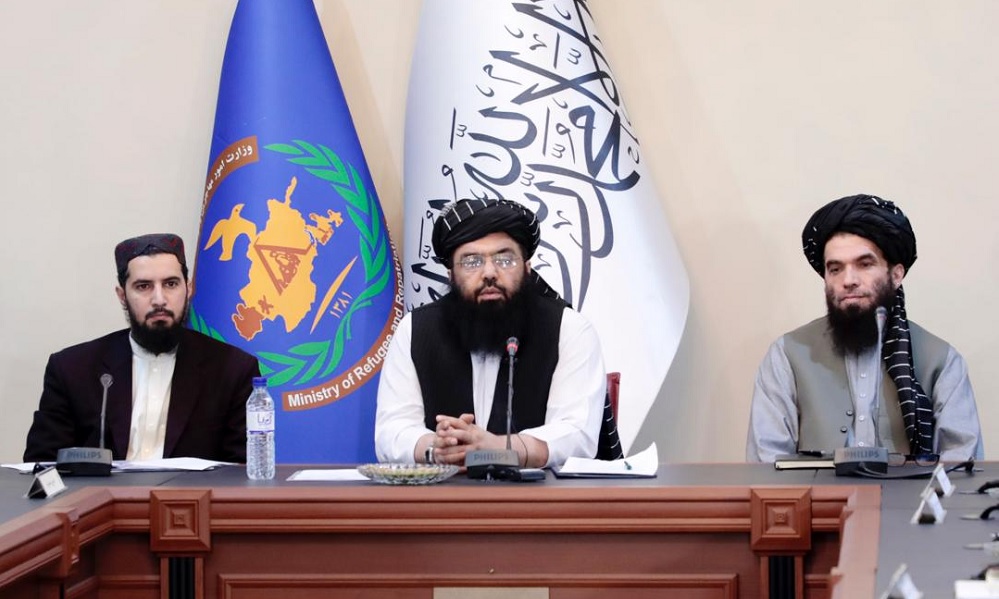
Since the Islamic Emirate came to power, approximately 6.8 million Afghans have returned home, either voluntarily or forcibly, from neighboring countries and other nations, according to the Minister of Refugees and Repatriation.
Mawlawi Abdul Kabir, speaking at a meeting on finalizing a draft plan for a permanent migration solution in Afghanistan, added that 1.3 million Afghans have been internally displaced due to natural disasters during the same period.
With winter approaching, widespread poverty and severe cold are threatening thousands of lives. Meanwhile, the forced expulsion of Afghan migrants from neighboring countries, particularly Iran and Pakistan, continues.
The Islamic Emirate has repeatedly urged neighboring states to allow migrants to return voluntarily. According to UNHCR, over two million Afghans have returned from Iran and Pakistan since the start of 2025.
-

 Latest News2 days ago
Latest News2 days agoAfghanistan signs 30-year deal for marble mining in Daikundi
-

 Latest News4 days ago
Latest News4 days agoAfghan border forces prevent illegal entry of hundreds into Iran
-

 Latest News3 days ago
Latest News3 days agoPakistan summons Afghan diplomat over deadly attack in North Waziristan
-

 Latest News3 days ago
Latest News3 days agoAfghan health minister calls for medical cooperation between Kabul and New Delhi
-

 Latest News4 days ago
Latest News4 days agoJapan allocates nearly $20 million in humanitarian aid for Afghanistan
-

 Latest News3 days ago
Latest News3 days agoKarzai urges reopening of girls’ schools and universities for Afghanistan’s bright future
-

 Health5 days ago
Health5 days agoAfghanistan seeks India’s support in standardizing traditional medicine
-
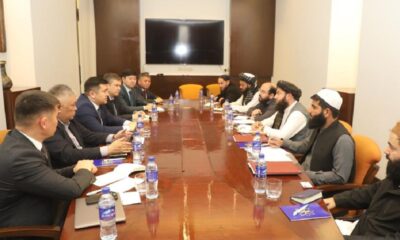
 Business5 days ago
Business5 days agoAfghanistan-Kazakhstan banking ties discussed in Kabul meeting
























